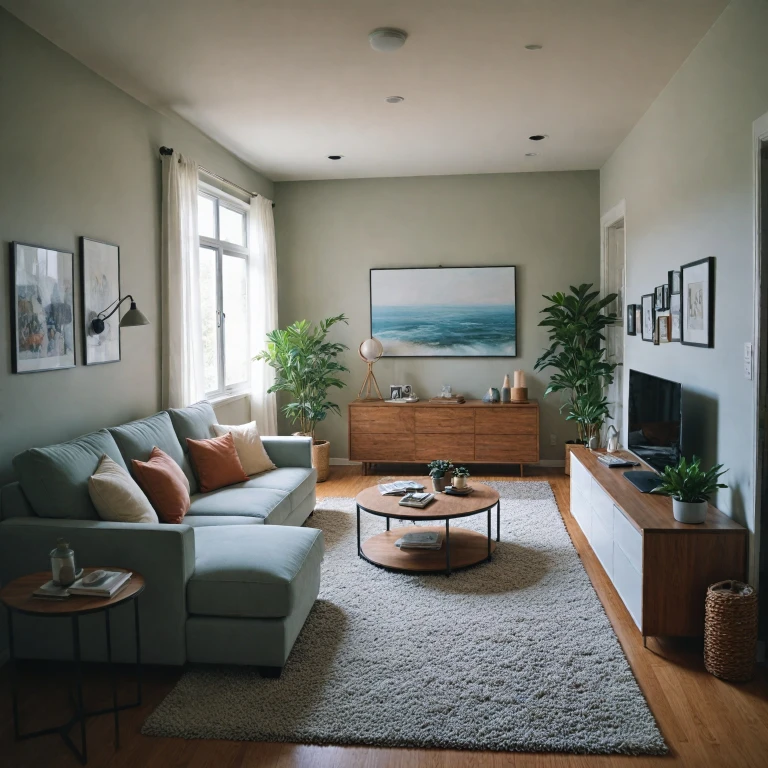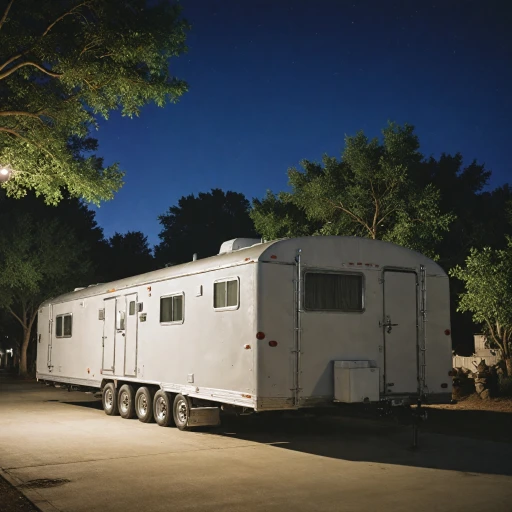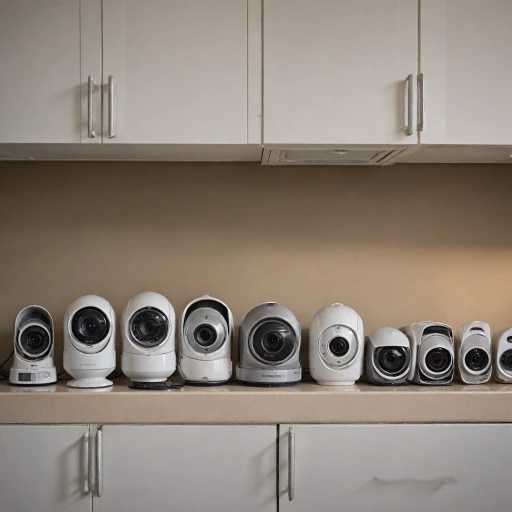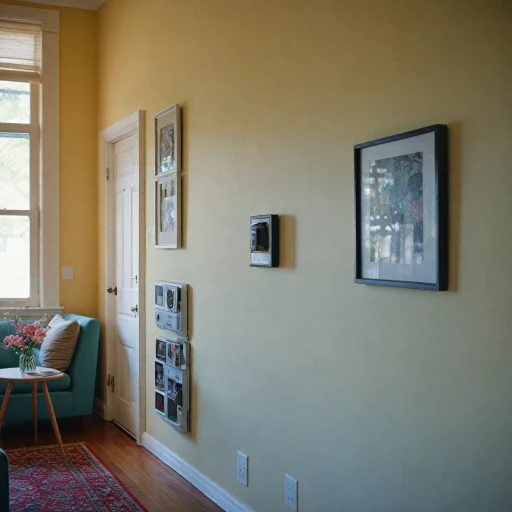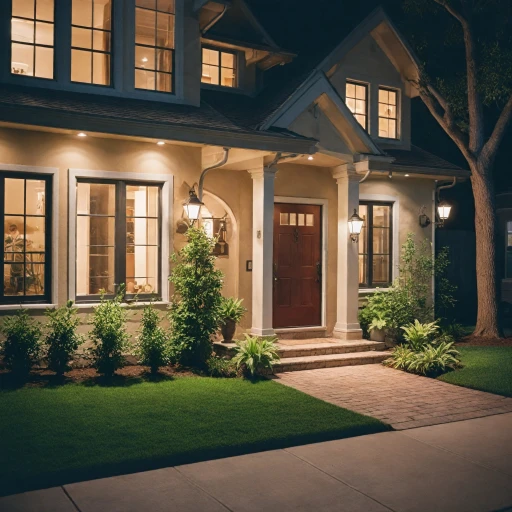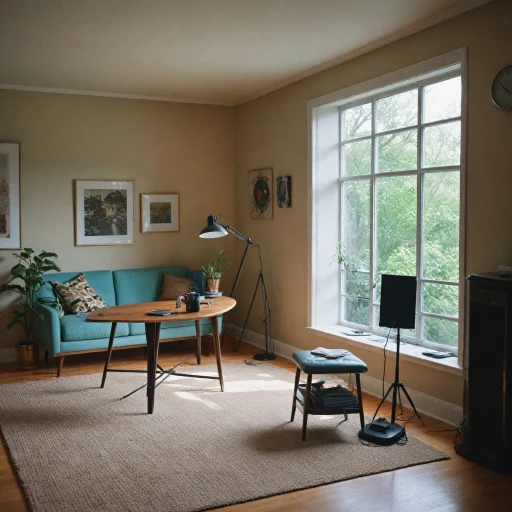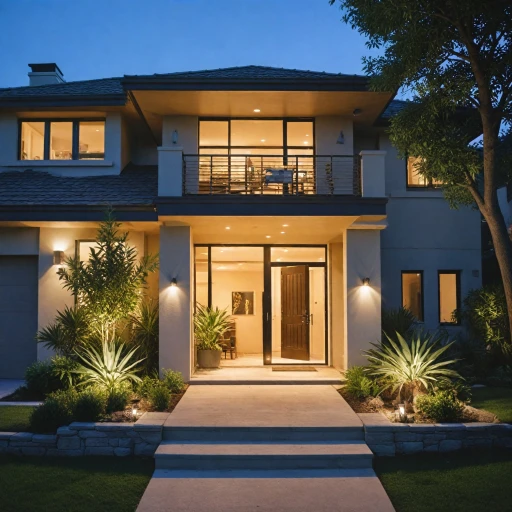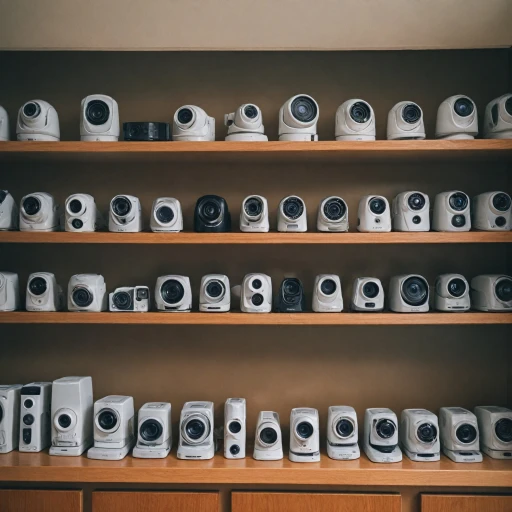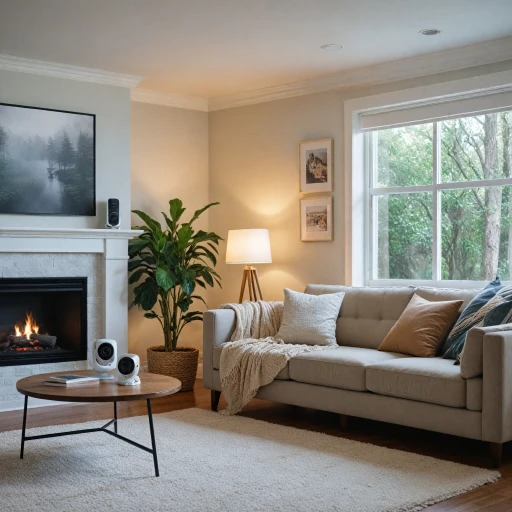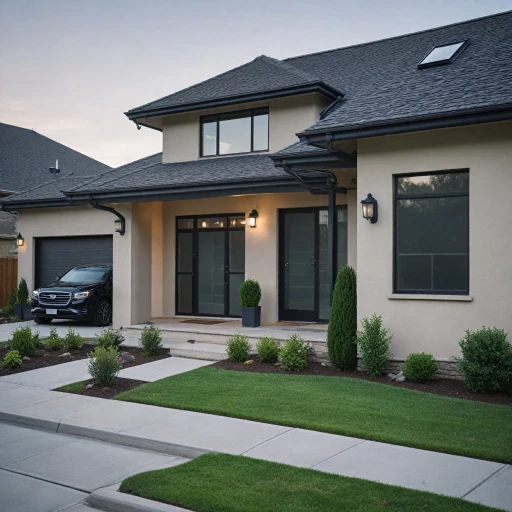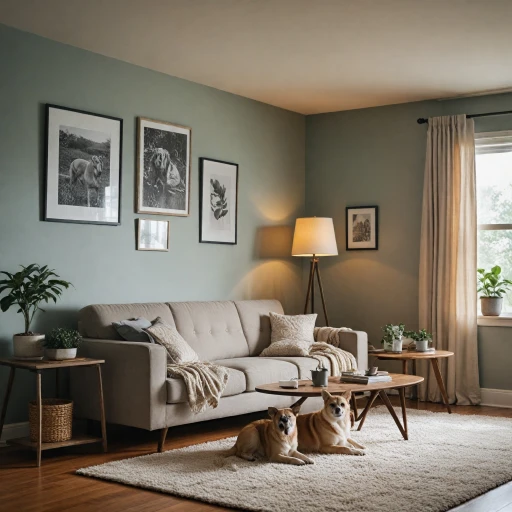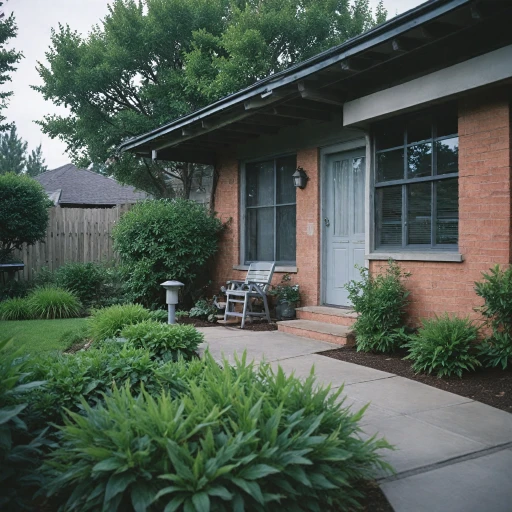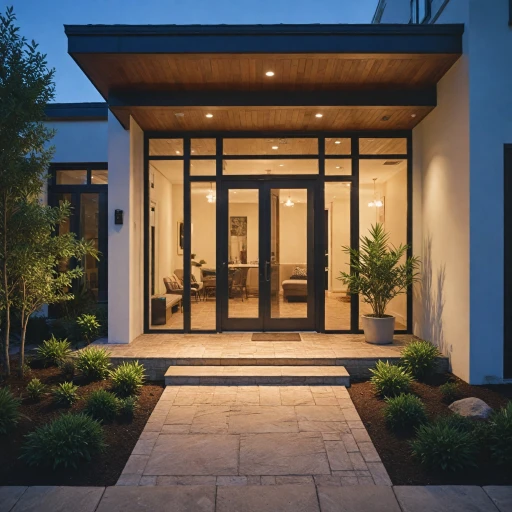Understanding the Basics of Home Security Cameras
Getting to Know Home Security Cameras
Home security cameras have become an essential part of securing your home, providing peace of mind for homeowners. These devices not only deter potential intruders but also offer a real-time view of your property, ensuring that you can keep an eye on things even when you're not there. Understanding the basics of these systems can help you make informed decisions about which security solutions are best for your home.
How Security Cameras Work
At their core, home security cameras are designed to capture video footage of your property. They can be wired or wireless, and many models now offer cloud-based storage, allowing you to access your data from anywhere. This accessibility is crucial for those who want to monitor their home while on vacation or at work. Some cameras also come with additional features such as motion detection, night vision, and two-way audio, providing comprehensive security coverage.
Types of Security Cameras
There are several types of security cameras available, each with its own set of features and benefits:
- Indoor Cameras: Perfect for monitoring the inside of your home, these cameras are often used to keep an eye on pets or children.
- Outdoor Cameras: Built to withstand the elements, outdoor cameras are ideal for monitoring the perimeter of your property.
- Doorbell Cameras: These cameras allow you to see who is at your door, providing an added layer of security.
- PTZ Cameras: Pan-Tilt-Zoom cameras offer flexibility in viewing angles, allowing you to cover a larger area with a single device.
Why Understanding Your Needs is Crucial
Before purchasing a security camera, it's important to assess your specific needs. Consider factors such as the size of your property, the level of security you require, and your budget. This will help you choose the right camera and ensure that your home is adequately protected. For those seeking a comprehensive security solution, integrating a security system with multiple cameras might be the best approach. Maximizing home security with a 16-channel NVR system can be an excellent option for extensive coverage.
In the following sections, we'll explore the importance of having a unified security system and provide tips on selecting the right camera for your needs. Additionally, we'll cover installation best practices and address privacy concerns to help you maintain a secure and lawful setup.
The Importance of One Security System
Why a Single Security System is Essential
In our increasingly interconnected world, investing in one comprehensive security system can be the difference between peace of mind and vulnerability. Whether you're safeguarding your home or business, this approach merges various security services into one seamless package. This streamlines the protection process, making it easier to access real-time information and respond promptly to incidents. A single system solution houses everything from cameras to alarms within one framework, enabling efficient data management and response times. This approach is especially eye-catching for businesses in Eugene and the broader Lane County area, where many are now turning to industry-leading security companies for customized and robust security solutions to meet their unique needs. Opting for a single system also simplifies interactions with your security company, reducing the need to coordinate among multiple service providers. Many providers in the industry offer packaged solutions that include comprehensive security options, including cyber insurance for modern threats, as well as traditional physical security. For homeowners who want to join their local community in boosting security measures, integrating an eight-camera security system could be an optimal choice. This ensures maximal coverage and heightened awareness of your surroundings. Those considering this option can learn more and explore further solutions. Emphasizing a cohesive security system can offer defensive benefits and convenience, protecting your home or business from potential hazards more effectively. As you assess the options available to you, it's pivotal to request a quote and contact local providers to tailor these technologies to your specific needs. The role of highly trained security guards and security officers cannot be overstated, offering an additional layer of protection and assurance in safeguarding your interests.Choosing the Right Camera for Your Needs
Selecting the Ideal Camera Tailored to Your Needs
When venturing into the world of home security solutions, it's crucial to choose a camera that caters specifically to your individual requirements. With a myriad of options available in the market today, making an informed decision is key to an effective security system.
A quality security camera should provide clear and precise images, ensuring real-time monitoring. It's beneficial to assess whether your security needs lean more towards indoor surveillance, outdoor surveillance, or a combination of both. This will guide you in selecting the appropriate camera design and technology.
- Resolution and Clarity: Opt for cameras with high resolution for better image quality. Whether protecting a business or a home, this feature is fundamental for identifying potential threats.
- Field of View: Consider the coverage area required to secure your property. A wider field of view offers more comprehensive surveillance, safeguarding both home and commercial spaces.
- Night Vision: For 24/7 security, night vision capability is an essential feature, allowing reliable monitoring during darker hours.
- Connectivity and Access: Choose cameras that provide seamless integration with cloud services. This not only enhances security through real-time data access but also allows ease of off-site monitoring.
- Durability: Especially for outdoor settings, ensuring your camera can withstand various weather conditions is pivotal.
Furthermore, the transition from traditional cables to more advanced solutions can significantly impact your setup. To explore how transitioning from BNC to RCA in home security cameras can enhance your current system, check out our complete guide on Understanding the Transition From BNC to RCA in Home Security Cameras.
Working closely with a security company can provide industry-leading insights and services. Many offer comprehensive security evaluations to determine the best solutions for your environment, whether for home use or to protect a business.
Taking the time to thoroughly research and learn about the different systems available can assist in making an informed decision. For business owners, it might also be worthwhile contacting local security providers or engaging with chambers of commerce like those in Lane County, to discover what security services are prevalent in your area.
Installation Tips for Optimal Coverage
Getting the Most Out of Your Security System Installation
To ensure your home security cameras are providing the highest level of protection, proper installation is key. It's essential to think strategically about where to place your cameras to cover the most vulnerable points of entry without compromising your privacy or that of your neighbors. Here are several considerations:- Strategic Placement: Position your cameras where they can monitor doors, windows, and other potential entry points. Make sure these spots are not easily blocked by trees or other structures.
- Field of View: Choose cameras with a wide field of view to maximize the coverage area. This will often reduce the number of cameras you need, making your system more cost-effective.
- Height and Visibility: Cameras should be placed high enough to avoid tampering but visible enough to act as a deterrent. The sight of cameras often makes potential intruders think twice.
- Lighting Conditions: Examine the area’s lighting both day and night. Ensure your cameras have night vision capabilities or are positioned close to exterior lighting sources.
- Connectivity and Power: Check that your cameras are installed within range of your Wi-Fi network, or have reliable power connections if they're wired. Consider backup power solutions in case of an outage.
Privacy Concerns and Legal Considerations
Safeguarding Your Data and Privacy
Understanding the significance of privacy when utilizing a home security system is paramount. With the rise of comprehensive security solutions, especially those offered by highly trained security companies, it's crucial to ensure that the data collected by your cameras remains secure and is used appropriately. Security providers are increasingly offering cloud services as part of their business solutions. While these services can provide enhanced access, enabling you to monitor your security camera footage in real time, they also require robust data protection measures. Cyber insurance may be a valuable consideration to protect your business or home from potential data breaches. Installation of security systems should always factor in both internal and external privacy concerns. Surveillance cameras should not be placed in private areas such as bathrooms or bedrooms. Additionally, it’s essential to be transparent with family members or employees about the locations of any installed cameras. For those in lane county or who are chamber commerce members, leveraging local security service providers can offer the advantage of on-the-ground knowledge and support. These security officers have deep familiarity with community-specific requirements and legal frameworks, ensuring that your systems are compliant and effective. Finally, ongoing maintenance by a skilled team can prevent potential data vulnerabilities. Regularly updating security software and firmware, as well as consulting security guards and industry experts about best practices, can ensure that your personal information remains protected over time. By prioritizing these privacy measures, you create a secure environment that not only deters intrusions but also maintains the trust and safety of all involved.Maintenance and Troubleshooting
Maintaining Your Security System
Regular maintenance of your security camera system is crucial to ensure its optimal performance and longevity. This involves several key steps to keep your system in pristine condition.- Routine Inspections: Regularly check all components of your security system, including cameras, wiring, and recording devices, to detect any signs of wear or malfunction. Trained security professionals or a prompt service request from your security company can assist in these inspections.
- Cleaning and Care: Clean the camera lenses periodically to ensure clear images. Dust or other obstructions can hinder camera effectiveness and your ability to protect what's important.
- Updates and Firmware: Ensure that all software and firmware are up to date. Manufacturers often release updates that address security vulnerabilities and improve system performance. Neglecting these updates can expose your systems to potential threats.
Troubleshooting Common Issues
Even with the finest security solutions, issues may arise over time. Here’s how to address them:- Connection Problems: Ensure reliable internet connectivity to prevent video feed disruptions. A robust connection is necessary for real-time monitoring and cloud data access.
- Camera Malfunctions: If a camera isn’t functioning correctly, check the power supply and connections first. A comprehensive security service can extend troubleshooting support when needed.
- Alarm Failures: Test alarms regularly to confirm functionality. If they fail, assess their settings or contact your security company for assistance.
- Data Storage Issues: If storage becomes an issue, consider cloud storage services that ensure your footage is both secure and accessible.
